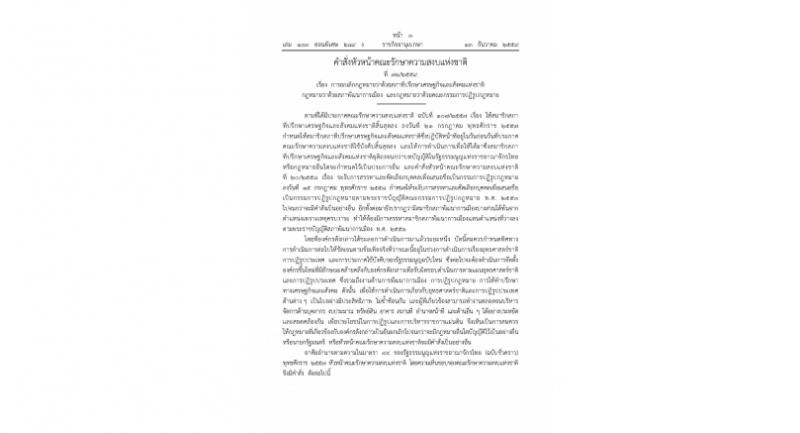Worry over public participation in political progress after junta suspends three bodies

A JUNTA order to suspend three bodies overseeing legal reforms and democratic development will significantly reduce public participation in political progress, members of the panels have warned.
The responses came after Prime Minister General Prayut Chan-o-cha on Tuesday issued an order suspending laws on the Political Development Council (PDC), the National Economic and Social Advisory Council (NESAC) and the Law Reform Commission (LRCT).
PDC president Theerapat Serirangsan said on Tuesday’s move froze the country’s democratic development as there is no guarantee future agendas would create a mechanism to continue political plan development. He believed that the PDC would be totally abolished once all of its officials are transferred.
LRCT member Sunee Chairos said that she was worried about the body’s suspension as it left no mechanism for people to engage in legal reforms.
“From now on, the National Legislative Assembly will carry on legal reforms without listening to people. That is the scariest thing,” she said. “We have worked independently so we will certainly not overstep the government’s workload. I just don’t buy the NCPO’s claim.”
The order said that all legislation related to the three bodies was revoked except for those involving the establishment and general functions of the bodies. The prime minister or his assigned deputy will |oversee the three bodies instead of their respective boards. Any legislation, regulation, announcement, order or Cabinet resolution referring to heads of the three bodies would refer to the PM instead, according to the order.
The order also abolished boards overseeing the PDC and its underlying Political Development Fund for Civil Sector Commission Bureau.
The order was invoked under the interim charter’s Article 44 that grants absolute power to Prayut as head of the ruling National Council for Peace and Order (NCPO).
Deputy Prime Minister Wissanu Krea-ngam said yesterday that the order was made to reduce overlapping work ahead of the national reform and strategy agendas. He said that while the three offices would still remain, about 400 staff would gradually be allocated to other agencies.
The three bodies have faced a series of challenges from the junta. In 2014, the junta issued an order ending the terms of NESAC members. Its appointed, now-defunct National Reform Council (NRC) suggested that the PDC should be abolished in the new charter, following concerns that it could be a financier to civil society sectors.
The PDC responded that it enforced public engagement in the political arena and helped develop democracy under the constitutional monarchy regime. In 2015, the LRCT was ordered by the junta to have its member selection procedure suspended.
These two previous orders of the NCPO were also revoked by Tuesday’s order.
